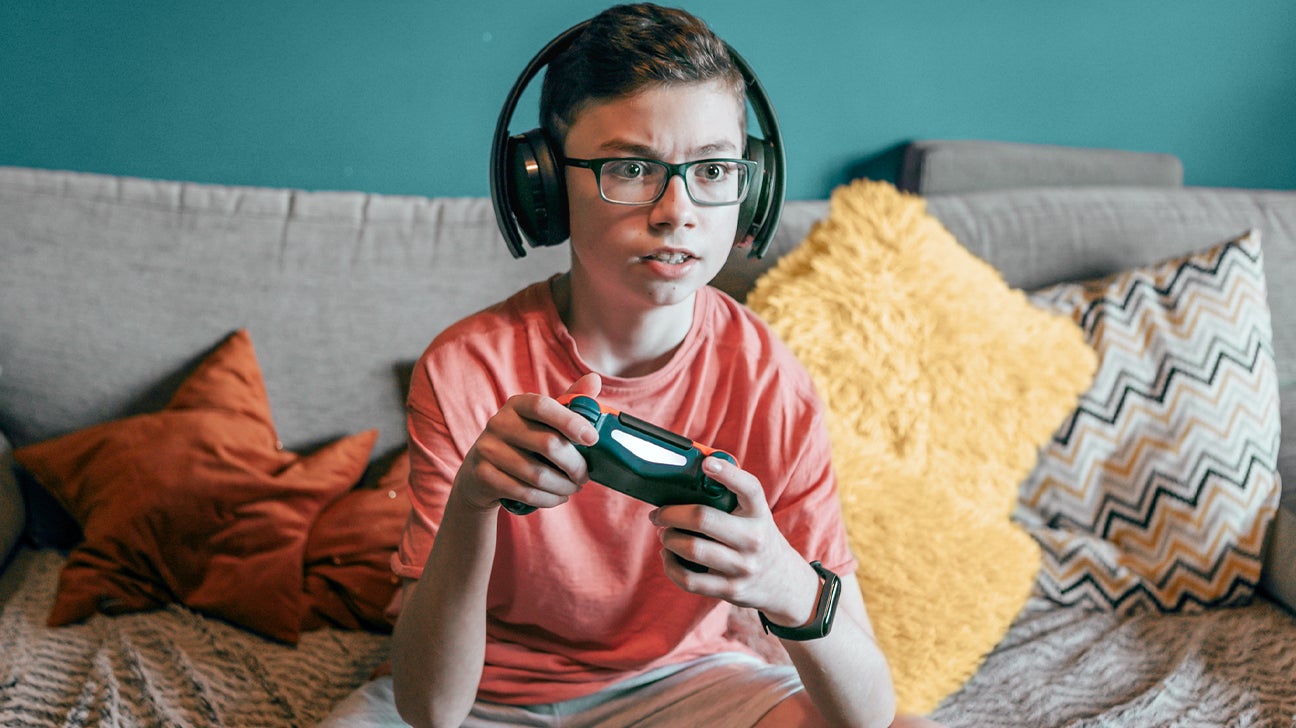
- A new study has found an association between screen time and the development of OCD in preteens.
- Playing video games and watching videos were the most strongly linked.
- However, watching traditional TV was not linked to OCD.
- Experts say parents can help their children by setting limits and modeling good habits.
A new study published in the Journal of Adolescent Health reports that for preteens, the amount of screen time that they engaged in was linked with future development of obsessive-compulsive disorder (OCD).
In fact, study lead author Dr. Jason Nagata, an Assistant Professor of Pediatrics in the Division of Adolescent and Young Adult Medicine at the University of California San Francisco, said that every hour of playing video games per day increased the odds that a child would develop OCD by 15%.
Every additional hour per day of watching videos, such as on YouTube, also increased the odds by 11%.
According to the report, OCD is a mental disorder in which a person has recurring and intrusive thoughts and feels compelled to perform certain repetitive behaviors.
The study authors note that OCD can have severely debilitating effects that last into a person’s adult life.
How the study was conducted
Since the incidence of OCD tends to peak around the ages of 9-10 years, Nagata and his team chose to examine children of this age for their study.
Over 9,000 American children were included in the analysis, which used data from the ABCD Study.
The sample was almost equally balanced between male and female children, as well as being racially and ethnically diverse.
The researchers looked at data at baseline as well as two years later.
To determine screen time, each child took a survey asking questions about how many hours they normally spent on various types of screen time, including watching TV or movies, watching videos, playing video games, texting, video chatting, and social media. This information was used to calculate how much screen time the children engaged in on a typical day.
A diagnostic tool called the Kiddie Schedule for Affective Disorders and Schizophrenia (KSADS-5) was used to assess whether the study participants had OCD at the two-year mark.
The researchers found that each added hour of total screen time was linked with higher odds of having an OCD diagnosis after two years.
Hours watching videos and playing video games were the most strongly linked to this effect.
How screen time may be linked to OCD development in preteens
In an interview with Healthline, Nagata said children who spent a great deal of time playing video games reported feeling the need to play more and more and being unable to stop despite wanting to.
“Intrusive thoughts about video game content could develop into obsessions or compulsions,” he explained.
Nagata further noted that YouTube videos can allow for compulsive viewing, saying that algorithms and advertisements can exacerbate obsessions and compulsions.
He added that one “interesting” observation that was made was that they did not find any association between traditional television viewing and OCD.
“With traditional television, it’s harder to be so focused on only one area as there are limited channels and programming,” he explained.
Limitations of the study
Dr. Hanna Garza, Clinical Director for Texas Child Health Access through Telemedicine (TCHATT), at Texas Tech University Health Sciences Center El Paso, Texas (TTUHSC EP) said, “This study is unique and I would like to see similar studies to be done on this topic.”
However, she noted there were several limitations.
Screen time was self-reported, which Garza said could lead to social desirability bias. In other words, children might report what they think they should be saying rather than how many hours they are actually spending.
Additionally, she said that the correlation between screen time and OCD needs further exploration, as it is “unsubstantial” since the study only focused on video games and video watching.
She further noted that the study did not measure the quality or content of the screen time in order to make a connection between variables.
And, finally, she said the study did not specify if screen time was recreational or not.
Nagata explained that one additional limitation was the young age of the participants. “Although we did not find an association between social media and OCD, the children in this study were 9-10 years old at baseline and younger than the age of permissible use for most social media platforms.
“Social media use is expected to increase from early to late adolescence,” he added.
Helping kids have a healthy relationship with screen time
Garza expressed the importance of balance in helping children use their screen time wisely.
“Balance is extremely important in life, especially when it comes to children and adolescents,” she said.
“It is beneficial to explore different interests and to experience fun things, but it has to be done in moderation to allow for other activities such as learning, chores, and family time to occur.”
Nagata suggested that parents should regularly speak with their children about their screen time usage and develop a family media use plan. This plan could include setting limits and encouraging time away from the screen, for example, before bedtime or during meals, said Nagata.
Nagata additionally emphasized the importance of parents modeling good behavior for their children with their screen usage.
He concluded by stating that the warning signs of problematic screen use are when it begins to affect the child’s quality of life, relationships, and daily functioning.
“Children may be unable to control or reduce their screen use. They may lose interest in other activities. Screen use preoccupies their thoughts,” he said.
OCD and Kids: Video Games, Screen Time Linked to Compulsive Behavior
Source: Pinoy Lang Sakalam



0 (mga) komento:
Mag-post ng isang Komento